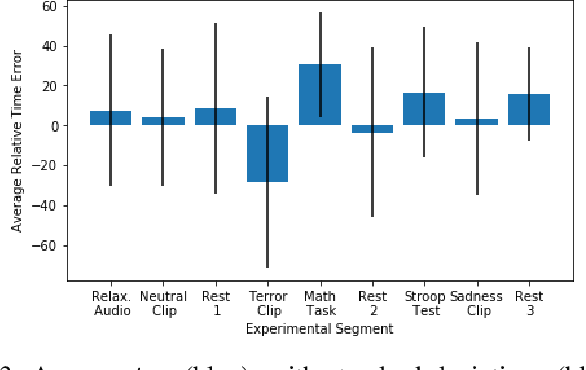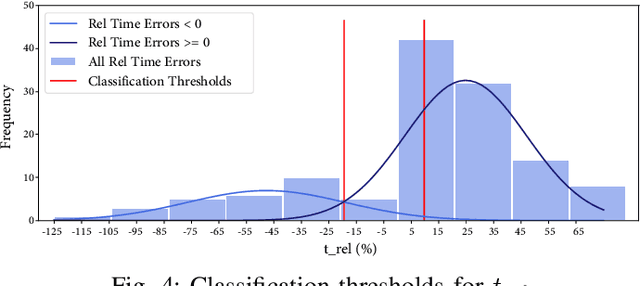Wearable and Continuous Prediction of Passage of Time Perception for Monitoring Mental Health
Paper and Code
May 03, 2021



A person's passage of time perception (POTP) is strongly linked to their mental state and stress response, and can therefore provide an easily quantifiable means of continuous mental health monitoring. In this work, we develop a custom experiment and Machine Learning (ML) models for predicting POTP from biomarkers acquired from wearable biosensors. We first confirm that individuals experience time passing slower than usual during fear or sadness (p = 0.046) and faster than usual during cognitive tasks (p = 2 x 10^-5). Then, we group together the experimental segments associated with fast, slow, and normal POTP, and train a ML model to classify between these states based on a person's biomarkers. The classifier had a weighted average F-1 score of 79%, with the fast-passing time class having the highest F-1 score of 93%. Next, we classify each individual's POTP regardless of the task at hand, achieving an F-1 score of 77.1% when distinguishing time passing faster rather than slower than usual. In the two classifiers, biomarkers derived from the respiration, electrocardiogram, skin conductance, and skin temperature signals contributed most to the classifier output, thus enabling real-time POTP monitoring using noninvasive, wearable biosensors.
 Add to Chrome
Add to Chrome Add to Firefox
Add to Firefox Add to Edge
Add to Edge